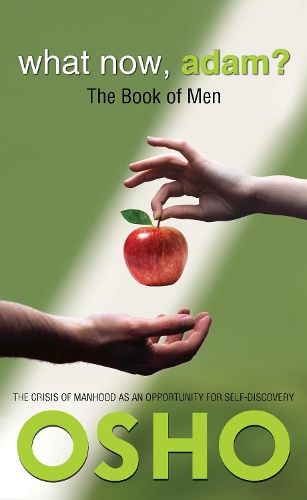
What Now, Adam: The Book of Men
(Paperback)
Publishing Details
What Now, Adam: The Book of Men
By (Author) Osho
Osho International
Osho International
16th May 2017
United States
Classifications
General
Non Fiction
Mind, body, spirit: thought and practice
155.332
Physical Properties
Paperback
225
Width 139mm, Height 215mm
Description
After decades in which women have started to take control of their own lives and have stepped out of old roles and restrictions to become independent of men, the focus now turns to men. The question at hand is, What now Adam
Men's liberation has not happened yet. Not only women but men also need a great liberation movement--liberation from the past, from the slavery of life-negating values and social conditionings that have been imposed upon them for thousands of years.
"Man needs a new psychology to understand himself, says Osho, and the basic understanding that needs to be deeply imbibed and experienced is that no man is just male and no woman is just female; each man is both man and woman, and so is each woman - woman and man. Adam has Eve in him, and Eve has Adam in her. In fact, nobody is just Adam and nobody is just Eve: we are Adam-Eves. This is one of the greatest insights ever attained.
But throughout history men have been conditioned to deny and reject their feminine qualities, to suppress their so-called "feminine" responses and feelings, and this has been reflected in the suppression of the female element in the outer world. Unless each man can start to discover his own inner woman, he is going to be tied up in a frustrating search for female qualities on the outside, in the outer woman. Each man needs to reintegrate his feminine qualities in order to become healthy and whole, complete within himself.
Unless the individual man starts to come out of his robot-like, mechanical functioning and unawareness and begins to live his life with self-love, awareness, and deep respect for his real nature, there seems to be no chance that our world can escape global suicide.
"Being a man or being a woman is an accident" says Osho. "Just like being a German or an Indian is an accident, being black or white is an accident all of these things are not our choices - but you are lost in the accidents! You are too worried about them, your whole time and energy is wasted in them, and you become so occupied with the non-essential that the essential is forgotten."
The essential for Osho is what he calls the being simply the being which is not accidental, but is destined. Rather than trying to figure out what it is to be a man, Osho suggests to find that which is absolutely destined. That is your nature, that is your essence.
In his playful and insightful way Osho looks at all of the different facets of the varying roles men play, showing how these qualities have shaped and influenced society. He shows how energies that are so often channeled into aggression and negativity can be transformed into creativity and personal evolution, and provides meditative techniques as a practical aid to moving through this process.
The book functions as a mirror, using common archetypes to structure the wealth of material that is available from Osho on the subject of Men's Liberation. These archetypes - Adam, The Robot, The Beggar, The Lover, The Politician, The Gambler, The Creator, and so on - should not be understood as fixed types of character or personality but simply useful descriptions of certain tendencies, conditionings, and trained behavior patterns of the personality, common to all of us.
As Osho indicates, our reality lies beyond all these stereotypes and categories. The archetypal concepts are used to help us recognize our particular mind-sets and then move beyond the minds limitations and confinements. To go beyond the personality and discover the original face, the real and essential self.
Author Bio
Osho is a contemporary mystic whose life and teachings have influenced millions of people of all ages, and from all walks of life. His often provocative and challenging teachings generate today more and more interest, and his readership is dramatically expanding around the world in more than fifty languages. People can easily recognize the wisdom of his insights, the broad sweep of his familiarity with both ancient and contemporary philosophical thought, and his ability to communicate in a way that is relevant to our lives and to the issues we are facing today. The Sunday Times (London) named Osho as one of the "1,000 Makers of the 20th Century." He is known around the world for his revolutionary contribution to meditation the science of inner transformation with the unique approach of his "OSHO Active Meditations" acknowledging the accelerated pace of contemporary life its unique challenges.
